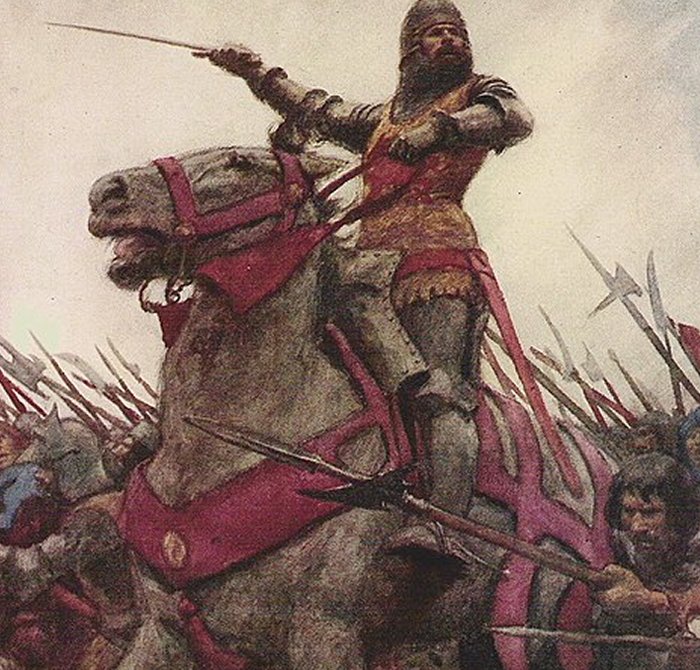Owain Glyndwr: Famous Medieval Welsh Warrior Prince And Symbol Of Independence
A. Sutherland - AncientPages.com - At the beginning of the 15th century, an uprising against the English resulted in the first and only Welsh-speaking parliament.
Owain Glyndwr by A.C.Michael. Arthur Cadwgan Michael (1881-1965) - Public Domain
One man was particularly unhappy with the chaos in his country. His name was Owain Glyndwr, and he is today known as the famous medieval Welsh warrior prince who fought against England. Owain Glyndwr is also widely recognized as a symbol of Welsh independence and patriotism.
Who Was Owain Glyndwr?
Owain Glyndwr was born in 1359 into a powerful family of the Anglo-Welsh nobility during a time of relative peace between the tribes of Wales and the English aristocracy.
His father, Gruffydd Fychan II, was a hereditary prince of Powys Fadog and Lord of Glyndyfrdwy, one of the lines of Welsh lords and princes who traced their royal lineage back to before the Norman conquest. His mother, Elen Ferch Tomas Ap Llywelyn of Deheubarth, was also of noble blood.
When Owain was 11 years old, his father died, and the young prince was fostered in the household of Sir David Hanmer, an Anglo-Welsh judge. Sir David Hanmer wanted Owain to study law at the Inns Of Court, but the young man never became a "man of law."
Owain Glyndwr was educated in England. He trained as a soldier and served with distinction for the English King before returning to Wales as a wealthy man ready to marry.
Glyndŵr statue at Cardiff city hall. Image credit: Seth Whales - Public Domain
However, he soon noticed people in his country were intimidated, and the law had no justice. The people of Wales desperately needed a leader who could change the situation in the country.
Owain Glyndwr's Revolt Against England
On September 16, 1400, Glyndwr instigated the Welsh Revolt against the rule of Henry IV of England. The immediate spark for Owain's revolt was his quarrel with his neighbor Reginald de Grey, Lord of Ruthin, who had stolen some land. Grey was close to the King, and the argument could not be resolved.
Glyndwr gathered loyal supporters around him, established an army at Ruthin, raised his battle flag, and started to drive out the English. He led a revolt against King Henry IV of England and rapidly gained power.
Shortly after Glyndwr's forces defeated Ruthin, the Welsh warrior followed up with attacks throughout north Wales. It was not long before he could claim the title Prince of Wales.
However, although initially successful, Glyndwr's uprising was eventually put down. The Englishmen were unhappy with the situation. The Englishmen sent many soldiers across north Wales, sacking and burning everything. In those days, the English army was Europe's largest and most effective.
Glyndwr was a wanted man. He and his supporters were forced to hide in the mountains. They stayed there the whole winter before emerging again the following year with a renewed campaign against the Englishmen.
Equestrian statue in Corwen. Image credit: Michael Garlick - CC BY-SA 2.0
For a brief time, the Prince of Wales and his army seized some castles such as Harlech, Conwy, and Aberystwyth, but the English army soon retook the fortresses, and Glyndwr was declared an outlaw. The English King Henry IV was determined to catch the Welsh warrior, but many loyal people surrounded him.
Llywelyn – Old Welsh Man Who Was Loyal To The Welsh Prince Until The End
One of them was Llywelyn ap Gruffydd Fychan, a local landowner from the village of Caeo. For many weeks, the Englishmen tried to force him to reveal the hiding place of Owain Glyndwr, but the older adult refused to say anything.
Eventually, king Henry IV lost his patience and ordered him to torture Llywelyn. However, Llywelyn was a patriot and loyal supporter of Owain Glyndwr and refused to say anything. So, King Henry IV decided to execute the old Welsh man. Llywelyn was dragged to the center of Llandovery and publicly executed in the same manner as Sir William Wallace, the brave Scottish knight and legendary hero.
What happened to Owain Glyndwr is not entirely known, but one thing is sure, he was never betrayed by his people and quietly disappeared into obscurity.
Written by – A. Sutherland AncientPages.com Staff Writer
Updated on December 21, 2022
Copyright © AncientPages.com All rights reserved. This material may not be published, broadcast, rewritten or redistributed in whole or part without the express written permission of AncientPages.com
Expand for referencesReferences:
Davies R. R., Owain Glyndwr - Prince Of Wales
Glanmor W., Owain Glyndŵr
Owain Glyndŵr (Wikipedia)
More From Ancient Pages
-
 Fenrir: Oldest Of Three Monstrous Children Of God Loki In Norse Mythology
Featured Stories | Mar 28, 2018
Fenrir: Oldest Of Three Monstrous Children Of God Loki In Norse Mythology
Featured Stories | Mar 28, 2018 -
 Tomb Of Pharaoh Seti I Is The Largest Tomb In The Valley Of The Kings
Ancient History Facts | Feb 5, 2016
Tomb Of Pharaoh Seti I Is The Largest Tomb In The Valley Of The Kings
Ancient History Facts | Feb 5, 2016 -
 Yokai Amabie – Protective Ancient Spirit That Can Ward Off Epidemics
Featured Stories | Mar 30, 2020
Yokai Amabie – Protective Ancient Spirit That Can Ward Off Epidemics
Featured Stories | Mar 30, 2020 -
 Strange Ancient Human Bones And Artifacts Of An Unknown Lost Civilization Found In Nebraska
Featured Stories | Jun 20, 2024
Strange Ancient Human Bones And Artifacts Of An Unknown Lost Civilization Found In Nebraska
Featured Stories | Jun 20, 2024 -
 DNA Offers Insights Into The Use Of Plants By Humans In The Paleolithic Age
Archaeology | Oct 13, 2022
DNA Offers Insights Into The Use Of Plants By Humans In The Paleolithic Age
Archaeology | Oct 13, 2022 -
 Easter Island’s Statues Reveal Bodies Covered With Unknown Ancient Petroglyphs
Archaeology | Jan 21, 2014
Easter Island’s Statues Reveal Bodies Covered With Unknown Ancient Petroglyphs
Archaeology | Jan 21, 2014 -
 Odd Ancient Dwellings Of The Snake People – American-European Connection Part 1
Featured Stories | Sep 6, 2020
Odd Ancient Dwellings Of The Snake People – American-European Connection Part 1
Featured Stories | Sep 6, 2020 -
 ‘Surprisingly Large’ Extinct Lemurs Shows Fascinating Similarities To Human Fossils
Archaeology | Dec 14, 2022
‘Surprisingly Large’ Extinct Lemurs Shows Fascinating Similarities To Human Fossils
Archaeology | Dec 14, 2022 -
 Aboriginal Legends Tell Millennia-Old Stories Of Events In The Sky
Myths & Legends | Mar 6, 2015
Aboriginal Legends Tell Millennia-Old Stories Of Events In The Sky
Myths & Legends | Mar 6, 2015 -
 Mystery Of The Scottish Medieval Wanderer And The Bog Bodies At Cramond Investigated By Scientists
Archaeology | Mar 28, 2022
Mystery Of The Scottish Medieval Wanderer And The Bog Bodies At Cramond Investigated By Scientists
Archaeology | Mar 28, 2022 -
 On This Day In History: Thor Heyerdahl Sails From Morocco On Papyrus Boat Ra II To Barbados – On May 17, 1970
News | May 17, 2016
On This Day In History: Thor Heyerdahl Sails From Morocco On Papyrus Boat Ra II To Barbados – On May 17, 1970
News | May 17, 2016 -
 Earliest Record Of An Aurora Discovered In The Bamboo Annals
Archaeology | Apr 15, 2022
Earliest Record Of An Aurora Discovered In The Bamboo Annals
Archaeology | Apr 15, 2022 -
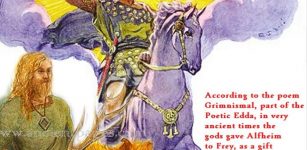 Frey – Handsome Vanir God Of Fertility And Lord Of The Elves In Norse Beliefs
Featured Stories | Mar 3, 2018
Frey – Handsome Vanir God Of Fertility And Lord Of The Elves In Norse Beliefs
Featured Stories | Mar 3, 2018 -
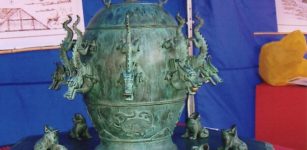 Zhang Heng Seismograph Could Record Earth’s Dangerous Movements
Artifacts | Mar 8, 2023
Zhang Heng Seismograph Could Record Earth’s Dangerous Movements
Artifacts | Mar 8, 2023 -
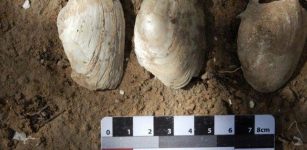 Aboriginals Inhabited South Australia 29,000 Years Ago – New Study
Archaeology | Jul 15, 2020
Aboriginals Inhabited South Australia 29,000 Years Ago – New Study
Archaeology | Jul 15, 2020 -
 Political Debates In Ancient Rome: Great Harshness, Personal Attacks And Unpleasant Atmosphere
Archaeology | Aug 29, 2018
Political Debates In Ancient Rome: Great Harshness, Personal Attacks And Unpleasant Atmosphere
Archaeology | Aug 29, 2018 -
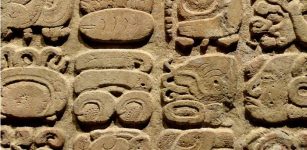 On This Day In History: Spanish Priest Diego de Landa Burned The Sacred Books Of Maya – On July 12, 1562
News | Jul 12, 2016
On This Day In History: Spanish Priest Diego de Landa Burned The Sacred Books Of Maya – On July 12, 1562
News | Jul 12, 2016 -
 Årsgång – Year Walk In The Forest – Mystical Journey To Gain Knowledge About The Future – An Ancient Swedish Ritual
Ancient Traditions And Customs | Jan 2, 2019
Årsgång – Year Walk In The Forest – Mystical Journey To Gain Knowledge About The Future – An Ancient Swedish Ritual
Ancient Traditions And Customs | Jan 2, 2019 -
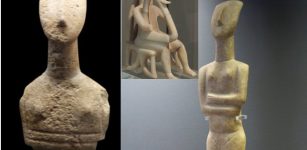 The Cyclades And Their Advanced And Mysterious Society Lost In Time
Featured Stories | Apr 25, 2022
The Cyclades And Their Advanced And Mysterious Society Lost In Time
Featured Stories | Apr 25, 2022 -
 Amaru (Katari) – Powerful Inca God Who Controlled Weather Phenomena
Featured Stories | Apr 9, 2024
Amaru (Katari) – Powerful Inca God Who Controlled Weather Phenomena
Featured Stories | Apr 9, 2024

